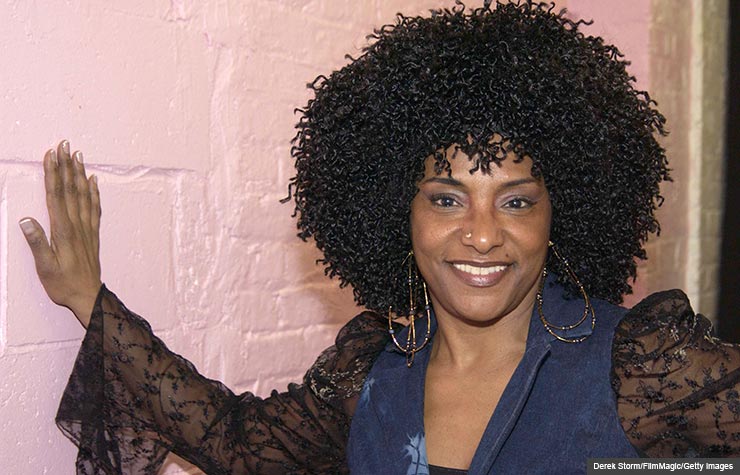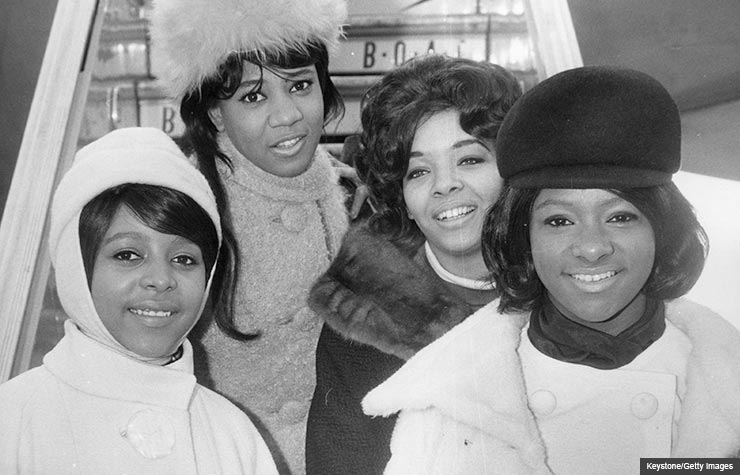AARP Hearing Center


LaLa Brooks was just 13 when she joined the Crystals, that quintessential girl group of the 1960s, and she was just 15 when she sang the lead on two of the Crystals' iconic hits, "Da Doo Ron Ron" and "Then He Kissed Me."
Soon after, she set off with Dick Clark's Caravan of Stars bus tour, which included a swing through the American South, where the young Brooklyn, N.Y.-born black woman got her first taste of racism. Brooks remembers that "even Diana Ross" couldn't enter the many whites-only restaurants the entertainers encountered en route.
These days Brooks, 66, a grandmother of six almost 50 years past her heyday, still performs and still has a gorgeous voice, which can be heard on a new album, All or Nothing. We talked to her about her early stardom, what inspired her to record these new songs and what's happened in the decades in between.
(Article continues beneath the video.)
The Crystals' sound


"When we started in the group a lot of people [who'd listened to our music on the radio] thought that we were white. We sound white, you know? We didn't have a Motown sound, we weren't soulful like that. We'd arrive at venues where we'd have to play and so many kids would run up to the car and say, 'Oh! They're not white, they're black!' Barbara [Alston] sang before I took the lead, and she had a very soft voice, and it was like a pop sound.
Touring the South
"I came from Brooklyn and to go on tour with Dick Clark into the South — it shocked me. We'd go onstage and they'd go crazy in the audience, in a nice way, and then you'd go offstage and you'd have to go to the colored toilet and not the white. That was kind of a hurtful thing. When you got offstage they would show you where your place was. It was hard, being 13. I couldn't understand. My mother was American Indian and my dad was black, and I'd never witnessed racism — I was never taught that. We always felt very secure that we were just as good as anyone else. So to witness it when I was a teenager, your feelings are more hurt than angry. … But I look back [at that time period] and I love it because I've learned so much. It just made me stronger, not hateful at all, but just strong."
On the Supremes
"On Dick Clark's tour we were with Martha Reeves and the Vandellas, Shirley & the Shirelles, the Dixie Cups. And the Supremes were with us before they had any hits. We'd go on after them because we were more of the stars because we had hits out, but then on that same five-month tour Dick Clark had to switch us because the Supremes' record kept going up the charts. I think they had three number ones by the end of the tour."
After the Crystals
"I went to Broadway. I was in the original cast of Hair. Diane Keaton played Sheila, and she and I shared a dressing room for about two years. She was the sweetest, most beautiful person you'd ever want to meet. After I did Hair I was in Two Gentlemen of Verona with Raul Julia. Then I lived in England with my husband [Leo Morris], he was a drummer; we later moved to Vienna and I had a radio show where I played music from the '40s to '60s. Now I live in the East Village, and I love it, because it's all crazy — I mean, I could wear turtles on my head! I have four kids, my oldest son is 46, and I have six grandkids. I'm peaceful and I'm happy."



































































More From AARP
Juanes: His Life and Passion
Promoting peace and social change through his music.